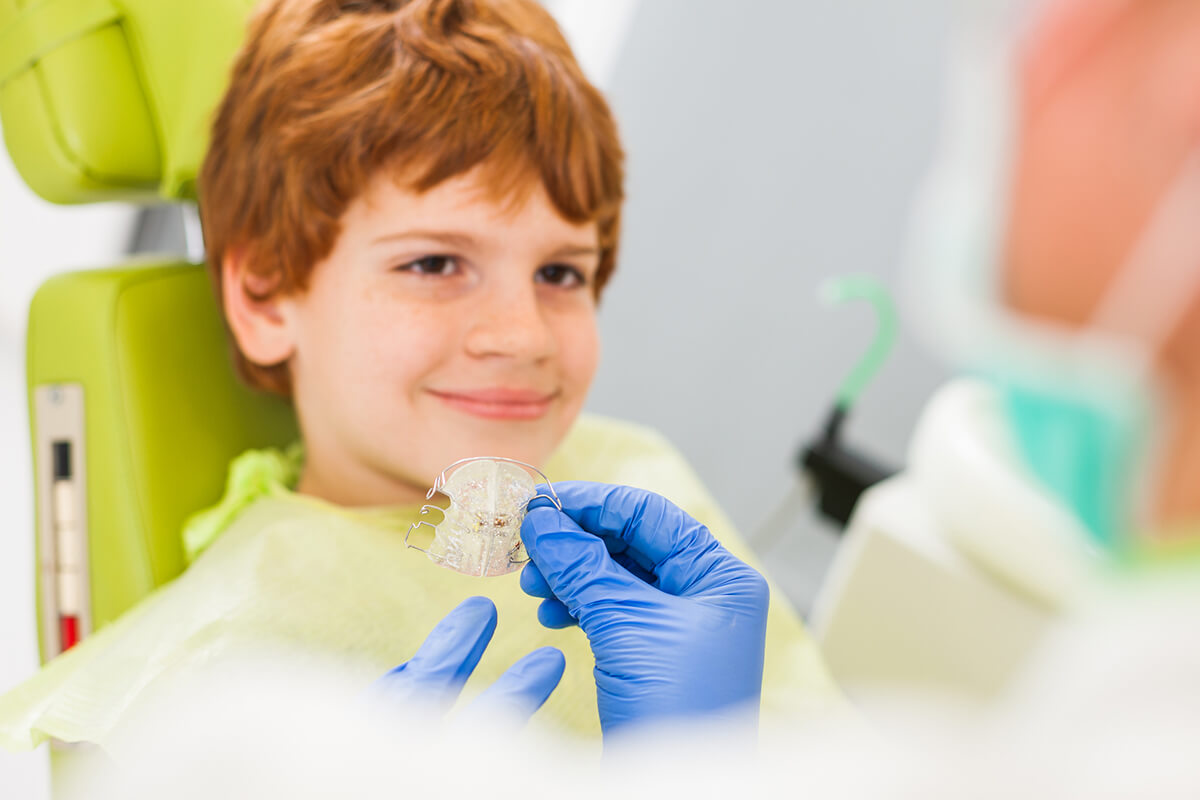Regular dental cleanings are important for everyone, including children. In order to maintain good oral and dental health, dentists recommend that children have their teeth professionally cleaned twice a year.
Why are dental cleanings necessary? What can happen if children don’t get their teeth cleaned? Learn the answers to these questions and more in this guide to pediatric dentistry.
How Often Should Children Have Dental Cleanings?
According to the American Dental Association and the American Academy of Pediatric Dentistry, children should have their teeth cleaned every six months by a licensed dentist. This is the recommended schedule for the average patient with no specific dental health concerns. Some patients develop plaque at a faster rate than others, or have other health conditions that could require more frequent cleanings.
What Does a Pediatric Dental Cleaning Entail?
A professional dental cleaning for a child typically includes the following steps:
- Plaque removal. Manual dental tools are used to remove plaque and calculus (hardened plaque) from the teeth.
- Polishing. An electronic dental tool is used to polish the surface of the teeth so that they are smooth and shiny.
- Flossing. The teeth are manually flossed using string floss to reach the spaces between the teeth.
- Fluoride treatment. In many cases fluoride treatment is applied to children’s teeth to help keep the enamel strong and resistant to decay.
What is a Comprehensive Oral Evaluation?
A regular dental cleaning also includes a comprehensive oral evaluation. This is a thorough inspection of the teeth and tissues of the mouth, jaw, and neck. The purpose is to detect any dental problems or soft tissue abnormalities that need to be addressed. Once a year X-rays are taken of the teeth and mouth to check for cavities and to evaluate the development of the teeth and jaw.
Why Are Regular Dental Cleanings Important?
Dental cleanings are a preventive measure to avoid tooth decay and gum disease. When children brush and floss their teeth at home, it is easy to miss spots where plaque can gather. Plaque is a sticky film made up of food residue and bacteria. The bacteria contained in plaque will eat away at the tooth enamel, causing cavities. It can also infect the gum tissue, resulting in gum disease.
If cavities are not treated, they will worsen until more complex procedures are required to save the tooth, such as a root canal. In some cases the tooth may not be able to be saved and will need to be extracted. Tooth decay easily spreads to adjacent teeth and may result in significant dental damage.
Gum disease that goes untreated can cause the gum tissue to pull away from the teeth, leaving them unsupported. Teeth may become loose and even fall out. The infection may also enter the bloodstream and spread throughout the body, which can severely compromise a child’s health.
How Important is Brushing and Flossing at Home?
Regular dental cleanings can often prevent cavities and gum disease, but brushing and flossing at home between appointments is also important for dental and oral health. Going to the dentist every six months without taking care of your teeth at home can still result in dental and oral problems. Dentists recommend that children brush their teeth twice a day and floss once a day. Parents of young children should monitor their children’s brushing and flossing techniques and provide assistance when needed.
Are Dental Cleanings Covered By Insurance?
The good news is that most dental insurance plans, as well as Medicaid, cover pediatric dental cleanings every six months. As long as you make each appointment at least six months after the previous appointment, your child’s dental cleanings and oral examinations should be covered. Dental cleanings and oral examinations are considered to be preventive dentistry, which is covered by most providers and plans.
Schedule a Dental Cleaning Today
Has your child been to the dentist in the last six months? If not, it is time to schedule an appointment. Dental Associates For Kids Only provides comprehensive oral evaluations, dental cleanings, and a wide range of other pediatric dentistry services.
Contact us today by calling 516-625-3806 to learn more and schedule an appointment.

